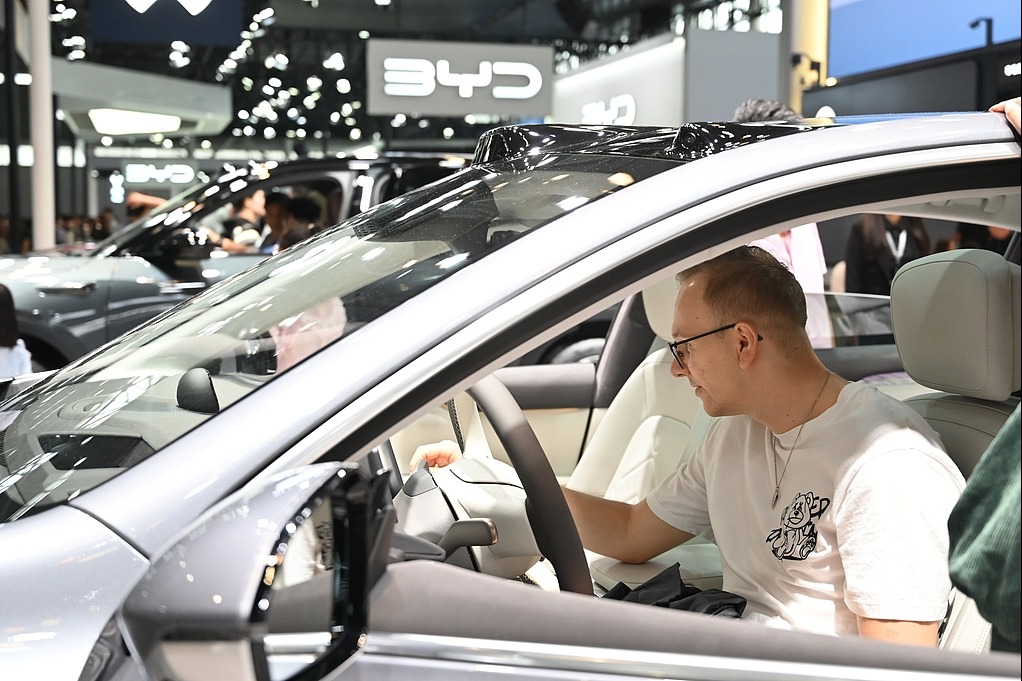Huaqiang North changes tack


Electronic market in Shenzhen plans to move up the ladder by nurturing high-end startups
Huaqiang North Electronics Market in Shenzhen, a major market for electronic products in China, is trying to incubate high-end hardware startups and independent-design brands.
Its comprehensive and diversified offerings of electronic components and terminals have attracted nine hardware incubators so far, including international and domestic outfits.
One of the latest incubators which have settled in is Blackark International Smart Hardware Innovation Center, supported by State-owned enterprise China Electronics Corp, one of the world's top 500 companies.
"Besides offering working space and equity investment, we also provide research equipment for startups to develop advanced technologies and industrial chain resources for small production," said Li Xinyang, general manager of Blackark.
He noted they are also cooperating with San Francisco-based HAX Accelerator, one of the world's largest hardware incubators which set up an office in Huaqiang North as early as 2011.
The plan is to co-cultivate 100 smart hardware enterprises in three years, he said.
Establishing hardware incubators in Huaqiang North Street is a win-win for both the startups and local electronics vendors.
Taking advantage of the abundant supply of resources, budding high-tech firms can quickly launch their technology in targeted markets.
Lu Yue, chief executive of Shenzhen Yaokan Technology Co Ltd in Blackark, cited a client from India who came to them looking for an intelligent camera, but they did not have any camera suppliers at that time.
"So I just went downstairs to have a look at the electronics market and found about five reliable suppliers. Their manufacturing ability and price advantages really surprised me," he said.
Cooperating with those newcomers also serves as a chance for traditional manufacturers and suppliers to upgrade their abilities.
Hu Laixi, manager of Longsheng Accessories Professional Market, one of the largest cell phone accessories vendors in Huaqiang North, said the startups not only drive new orders but also provide an opportunity for stores to transform their business models.
"Impacted by e-commerce and sluggish sales of digital widgets, some tenants were forced to pull down the shutters. Those who survived mostly have their own factories and the strength to upgrade," he said.
Ai Feifei, an official of the street authority, explained that "hardware innovation is our new direction of branding in the future and it could be established by bringing in more and more hardware incubators."
Looking back to the very beginning of the street's history, Ai noted its business started with electronic manufacturing and then moved up to wholesale goods. That still accounts for more than half of total revenue.
He added its history has laid a robust foundation to develop innovative hardware startups, which will in return promote general business on the street to step up the industrial chain.
Some homegrown vendors are also thriving in transforming themselves into new representatives of Huaqiang North Street.
Xu Yong, a former vendor at the electronics complex, established his own brand Remax in 2008.
So far, it has developed about 3,800 kinds of products in 700 categories, such as mobile phone cases, cables and power banks, by a team of more than 100 designers.
Their sales volume has hit 5 billion yuan ($717 million) so far. Their cool and fashionable products are sold in more than 6,300 shops in over 120 countries and regions.
"Huaqiang North market helps us set off to global markets quickly because many foreign buyers like to come here and they bring our products to Asia, Europe and the Americas," Xu said.




































